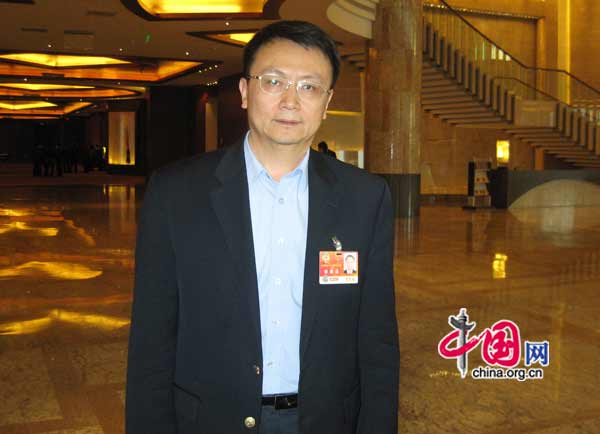Good Sino-U.S. relations benefit both sides
China's rise and America's relative decline pose a challenge for both countries. They must learn how to deal with the new situation and properly handle bilateral relations, according to Jia Qingguo, a professor and associate dean of Peking University's School of International Studies.
 |
|
Jia Qingguo, a professor and associate dean of Peking University's School of International Studies. [Photo: Zhang Ming'ai/China.org.cn] |
"We are in a competition for influence with China," U.S. Secretary of State Hillary Clinton told a Senate hearing on March 2, 2011. Asked to comment on Clinton's remarks, Jia said they showed that Clinton saw China's rise as a challenge to the United States. The implication was that the U.S. has to find ways to counter the growth of Chinese influence.
"In the past, the U.S. took the leading role in raising concerns about Sino-U.S. ties. When an issue arose, the U.S. would explain its stance and China would respond," Jia said. "But now China is trying to change this pattern. In some cases the U.S. is forced to respond to China's reactions to issues." "Both China and the U.S. need to lower their expectations of each other when it comes to bilateral relations," said Jia. "Too high expectations can lead to disappointment and bad feeling."
Jia said Sino-U.S ties got off to a bad start last year precisely because of the two sides' high expectations of each other. The U.S. wanted China to assume a more responsible role on international issues, including climate change.
"China expected the U.S. to show respect for China, as China has been very supportive on many issues, including the financial crisis," Jia said. "The U.S. should, at a minimum, not sell arms to Taiwan, and Obama should not meet with the Dalai Lama."
 0
0 






